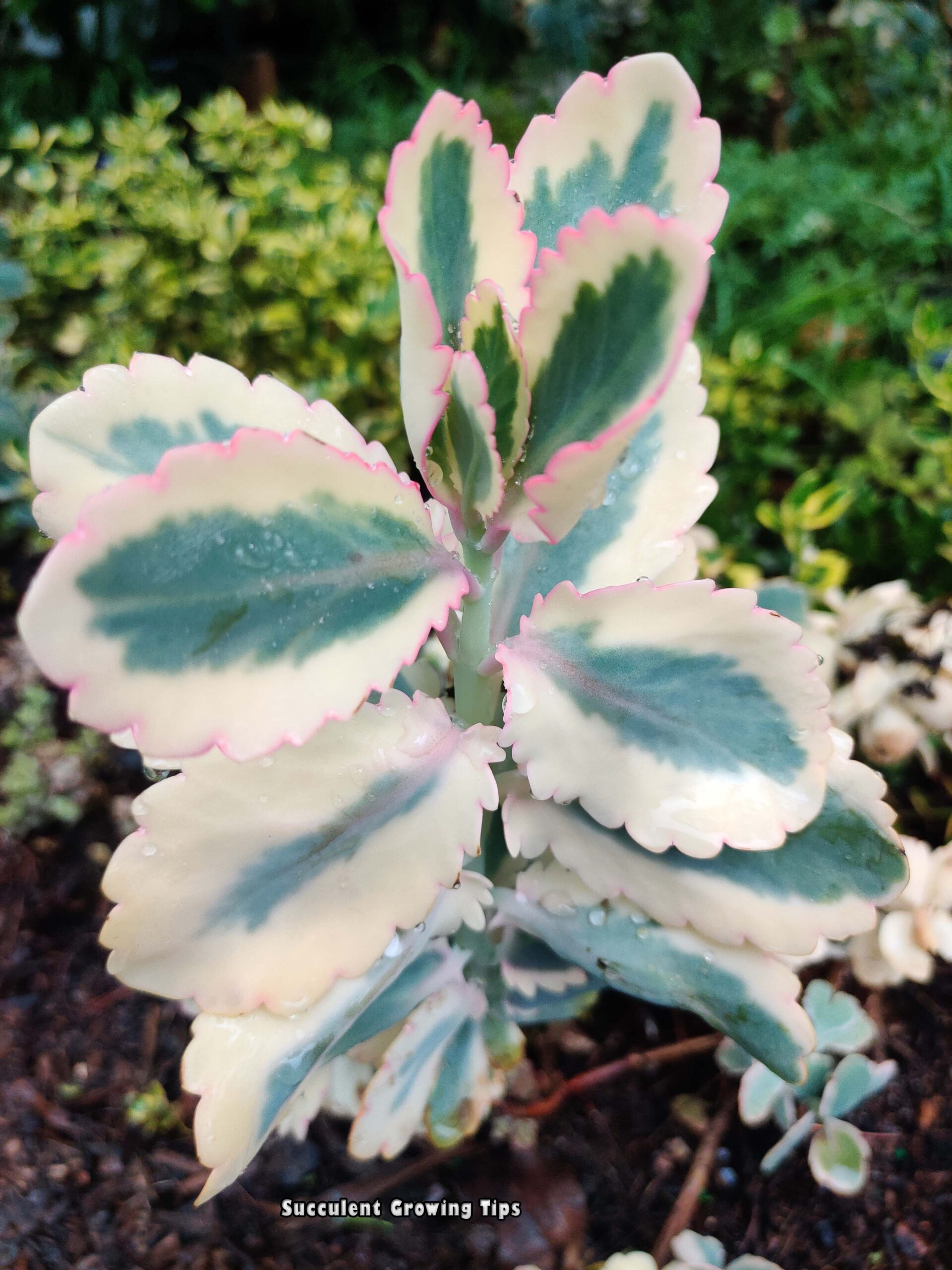With the popularity of succulents skyrocketing, many people with curious dogs, cats and other pets end up filling their home and garden with cute, chubby plants. Unfortunately, many common succulents can make your furbaby ill and even cause serious problems when enough is ingested.
I have two dogs myself and have had them since i started growing plants for a living. They have been around succulents and many other plants all their lives.
As i’ve grown many varieties of succulents that can be toxic/ poisonous to dogs i thought my two that they are not really allowed to get close to the nursery plants. I also keep most on tables, just to be super safe.
When you go to nurseries or garden centres it is not common to point out which plants can be toxic to pets. If you want to protect them the best thing you can do is arm yourself with information.
When bringing new plants home, whether it be a succulent or something else search its name to find out if they are poisonous or not.
Below are the most common succulent genera that can be problematic for dogs, cats and pets. If a succulent name starts with one of these, do reconsider, especially if your four legged baby is curious about plants.
Succulents That Are Toxic and Poisonous To Dogs, Cats & Pets
- Agave species
- Aloe species
- Crassula species
- Euphorbia species
- Kalanchoe species
- Portulacaria species
- Sansevieria species
- Senecio species
Agave
Agave plants are mildly toxic to dogs, cats and other pets. While they are unlikely to cause serious harm, they can certainly make your furbaby very uncomfortable and can cause pain.
Your pet can have diarrhoea or vomit if they ingest Agave.
In my opinion, it is the incredibly sharp spines that can seriously injure your pet. Some Agave get pretty big and get huge, needle-sharp spikes right at the end of every leaf.
Aloe
Despite Aloe vera being used in alternative medicine, Aloe plants can be mildly to moderately toxic to dogs, cats & other pets. Even humans can get a bit sick if they consume raw Aloe as it acts like a laxative.
Symptoms after ingestion include diarrhoea, vomiting, change in urine colour and depression.
Crassula
Crassula is a huge genus of plants and some of the most popular succulents in cultivation come from this genus.
The symptoms of Crassula poisoning include vomiting, diarrhoea, lethargy and depression.
Euphorbia
While the Euphorbia genus contains some spectacular species such as the Medusa’s Head above, these plants also contain a white, milky sap that is quite toxic and dangerous.
The Euphorbia sap can cause gastrointestinal issues as well as skin irritations and serious problems if the sap gets into the eyes and is left untreated. If your pet has consumed a Euphorbia a trip to the wet is necessary.
Kalanchoe
Kalanchoe are prized for their amazing flowers and can be found in gardens and homes around the globe. Kalanchoe are mildly toxic to dogs, cats and pets and should be kept out of their reach.
Kalanchoe poisoning can affect the heart and so can be quite dangerous if ingested in larger quantities or by small/ elderly pets. The poison is particularly concentrated in the flowers.
Symptoms include drooling, diarrhoea, vomiting, lethargy and even heart failure. Do contact your vet if this plants somehow end up in your pets stomach.
Portulaca
Portulaca grows glorious flowers, however should not be grown if you have a pet as it can gravely harm them.
Dogs, cats & other pets can suffer kidney failure if they ingest Portulaca plants and it is vital they get veterinary care.
Sansevieria
Sansevieria is a very popular indoor and shade garden succulent. Some of its species are also called the Mother-in-laws tongue.
The saponins is Sansevieria can cause gastrointestinal problems and your pet may experience drooling, diarrhoea and vomiting.
Senecio
The most popular Senecio are the Blue Chalksticks and the ‘String of’ succulents such as the String of pearls, String of bananas or String of dolphins.
Just like with most of the other toxic succulents, Senecio can cause drooling, diarrhoea, vomiting and lethargy.
The trailing Senecio may be very attractive to cats as they hang and dangle in the air.
